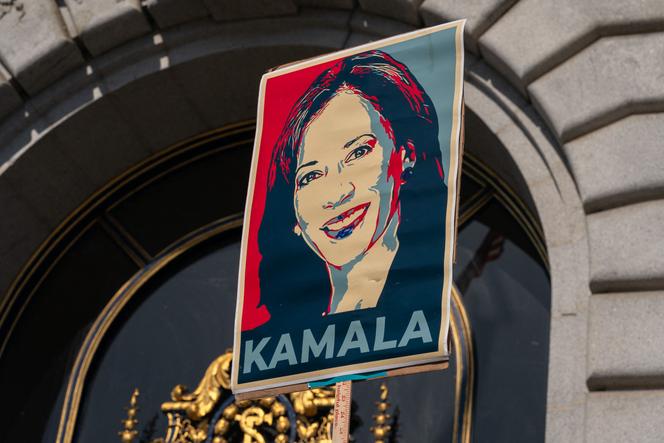


Since the start of the US presidential election campaign, Silicon Valley Democrats had been keeping a low profile. San Francisco was buzzing with rumors of increasingly open support for Donald Trump. In the wake of the assassination attack on the former president on July 13, Elon Musk formally pledged his support for the Republican candidate. Two major investors, Marc Andreessen and Ben Horowitz, followed suit, breaking with their Democratic allies.
But the passing of the torch from the octogenarian president to Kamala Harris has shaken things up. "There's a real momentum shift in Silicon Valley," commented Aaron Levie, CEO of cloud software company Box, two days after Biden announced his withdrawal from the race. He hoped the vice president's candidacy would lead to a "reset" of relations between the Valley and the Democratic Party.
Entrepreneurs who had shunned the incumbent president's campaign have rallied behind Harris. "I wholeheartedly support Kamala Harris," tweeted LinkedIn's Reid Hoffman within minutes of Biden's announcement. Harris is "much more pro-business than Trump," he explained on CNN. Ron Conway, another influential investor, followed suit, voicing "unwavering" support for the vice president.
Netflix co-founder Reed Hastings, who three weeks ago suggested that Biden should withdraw his candidacy, has given $7 million (€6.5 million) to the former California senator's political action committee. Harris can also count on the support of Marc Benioff, founder of Salesforce, and a number of women at the head of philanthropic foundations such as Sheryl Sandberg, Laurene Powell Jobs and Melinda French Gates. OpenAI's Sam Altman gave her financial backing during the 2020 Democratic primary campaign.
The relief is all the greater because Harris is well known in Silicon Valley. She cut her teeth in San Francisco as a prosecutor between 2004 and 2010, at the start of the start-up boom, and still has many friends there. Her brother-in-law, Tony West, the former deputy attorney general under Barack Obama, has been Uber's general counsel since 2017.
Entrepreneurs hope that she will be more receptive to their arguments than the current president, who, unlike Obama, has maintained his distance from tech bosses. "If by the end of the week she had a tech policy framework out there, a 10-point plan for pro-business, pro-tech, pro-entrepreneurship, and it was credible, I think she could very quickly rally a significant portion of the ecosystem," argued Aaron Levie, known for his Democratic sympathies, in an interview with Politico.
You have 55.43% of this article left to read. The rest is for subscribers only.
